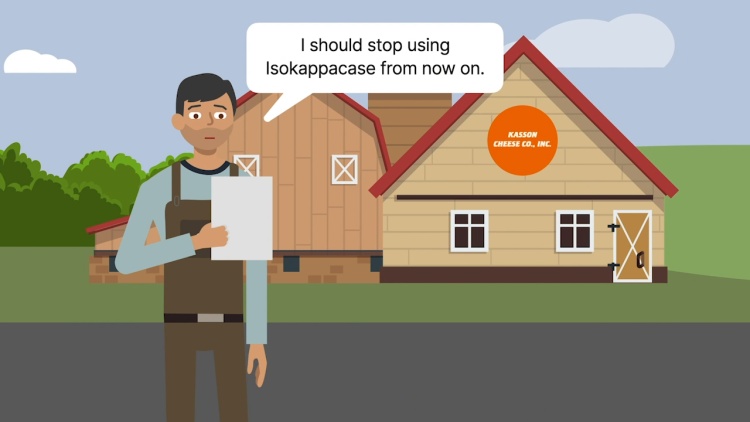Blossom Farm Products Co. v. Kasson Cheese Co., Inc.
Wisconsin Court of Appeals
133 Wis.2d 386, 395 N.W.2d 619 (1986)
- Written by Rose VanHofwegen, JD
Facts
Kasson Cheese Company (defendant) made mozzarella and provolone cheese using Isokappacase purchased from Blossom Farm Products Company (plaintiff). Isokappacase with low protein content is used as a starter or bacteriophage. High-protein Isokappacase is used to enhance yields, but the final product must be labeled imitation cheese. Kasson bought 100 times more Isokappacase than the amount needed as a starter, used it to increase yields, and labelled the final product “real cheese.” Blossom knew how much milk Kasson used, and that its extremely large-volume purchases meant it must use Isokappacase to enhance yields. The president of Isokappacase’s manufacturer said that Kasson could not label the product real cheese after witnessing a clotting problem in the production line that revealed Kasson was using Isokappacase to increase yields. Blossom also knew that Kasson must have been mislabeling its cheese products because doing so allowed Kasson to charge twice as much for them and Kasson could not have survived economically otherwise. The arrangement benefitted both Kasson and Blossom until Kasson received a warning letter from the state and stopped using Isokappacase. Blossom sued to recover $138,306 owed for Kasson’s last order. The trial court found the contract unenforceable, awarding Blossom nothing. Both sides appealed.
Rule of Law
Issue
Holding and Reasoning (Scott, C.J.)
What to do next…
Here's why 909,000 law students have relied on our case briefs:
- Written by law professors and practitioners, not other law students. 47,100 briefs, keyed to 997 casebooks. Top-notch customer support.
- The right amount of information, includes the facts, issues, rule of law, holding and reasoning, and any concurrences and dissents.
- Access in your classes, works on your mobile and tablet. Massive library of related video lessons and high quality multiple-choice questions.
- Easy to use, uniform format for every case brief. Written in plain English, not in legalese. Our briefs summarize and simplify; they don’t just repeat the court’s language.





